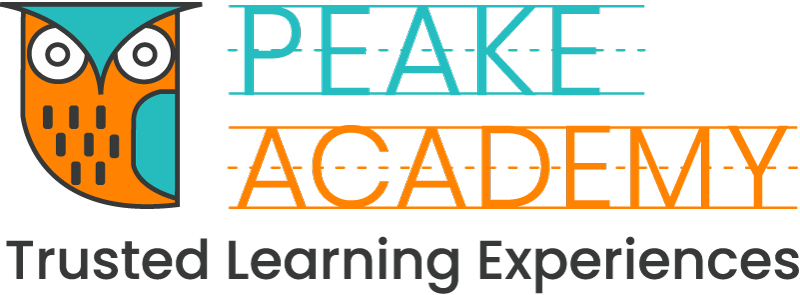Potty Training Without the Tears: 7 Gentle Tips That Actually Work
Let’s be honest—potty training can feel like a lot. One day your child is happily playing in a diaper, and the next you’re Googling “how to get my preschooler to actually sit on the toilet.” Whether you're a first-time parent or you're back in the potty-training trenches again, it's easy to feel the pressure—especially when preschool is around the corner.
But here’s the truth: potty training doesn’t have to be a high-stress milestone. In fact, it shouldn’t be.
At Peake Academy, we believe that children learn best when they're supported, not rushed. Potty training is one of the first big steps toward independence—but it’s also a deeply personal process that works best when it’s led by readiness, not rigid timelines. And the good news? You don’t have to do it alone.
In this article, we’ll share practical, pressure-free tips for making potty training a calm, positive experience—both at home and at school. Because when we treat this stage as a collaborative journey (rather than a race to the finish line), we build more than just bathroom skills—we build confidence, trust, and resilience.
Let’s zoom out for a moment. While it might seem like just a developmental hurdle, potty training is actually a foundational skill that supports a child’s sense of autonomy, self-awareness, and ability to follow routines—core pillars of preschool readiness.
🧠 In fact, research published in the journal Pediatrics found that children who begin toilet training before they are developmentally ready often take longer to complete the process and may experience more setbacks along the way.
So how do we know when they’re ready?
According to the American Academy of Pediatrics (AAP), signs of readiness include things like:
Staying dry for longer stretches (at least 2 hours)
Showing awareness of the need to go
Understanding simple directions
Expressing interest in the bathroom routine
Wanting more independence
It’s not about age—it’s about ability and attitude.
💬 As Dr. T. Berry Brazelton, a pediatrician and leading expert on child development, once said:
“Toilet training should be the child’s achievement, not the parent’s.”
This mindset shift makes all the difference. Instead of rushing the process, we follow the child’s lead—building confidence and capability one small win at a time.
Tips for Peaceful Potty Progress
Start with Readiness, Not Pressure
If your child resists sitting on the potty or melts down when it’s mentioned, it’s a sign to pause—not push. Wait a few weeks and try again. Readiness looks like interest, awareness, and some level of physical control—not just hitting a certain age.
Build a Routine Around Potty Time
Preschoolers thrive on rhythm. Incorporate potty time into your daily routine—after meals, before nap, before going outside. Make it predictable, not high-stakes. Pair it with something fun like a short book, a silly song, or a sticker on a chart.
Celebrate Progress, Not Perfection
Accidents will happen. That’s normal. What matters is the response. Stay calm, offer reassurance, and frame mistakes as part of learning. Saying “You’re learning! Let’s clean up and try again later” builds resilience better than any reward ever could.
Use Clear, Encouraging Language
Kids are learning new body signals and vocabulary. Keep your language consistent and simple: “Let’s go potty,” “Your body is telling you it’s time,” or “Tell me when you feel it coming.” This helps kids connect physical sensations with action.
Partner with Your Preschool
If your child is in a preschool setting, communication is everything. Let teachers know when you’re starting, share what works at home, and be open to their observations. A unified, encouraging approach makes the experience smoother for everyone.
Protect Their Dignity
Avoid shaming or spotlighting your child during this process—especially in public or around peers. Keep conversations respectful and private. They’re learning something big, and how we treat that growth matters.
Keep Extra Everything Handy
Trust us: you’ll never regret packing extra clothes, wipes, and backup pull-ups. A well-stocked bag helps you stay cool and calm when life happens (because it will).
You’ve Got This—One Step (and Accident) at a Time
Here’s what we hope you remember: Potty training isn’t a race. It’s a relationship-building moment. A chance to teach your child how to listen to their body, trust their own timing, and take pride in every small step forward.
Every child’s timeline is different—and that’s okay.
When you continue to lead with love and trust in the process, kids rise to the occasion in their own incredible way.
So take a deep breath. Celebrate the wins. Let the accidents roll off your back (no pun intended). And remember: you’re building something bigger than just bathroom habits. You’re building confidence. And that’s the best foundation of all.
Free Resource
Thank you for reading this content. And if you loved this post, please be sure to join our Parent Advisor Facebook group where we share more insights and community.
🧻 Download our free Guide to Toilet Training made by Peake Academy Preschool At Home—a practical resource packed with real-life tips to help you and your child take this next step with confidence.
🎒 And while you're at it, check out our Family Fun Passport—a printable adventure tracker designed to help you create simple, joyful memories all year long. Because the preschool years aren’t just about milestones… they’re about magic, too.
Visit our Parent Advisor and The Buzz Blogs to learn more about related topics and parenting tips. You are welcome to join our private Parent Advisor Facebook group. It’s a growing community of parents and preschool teachers where you can learn and share more parenting tips.









